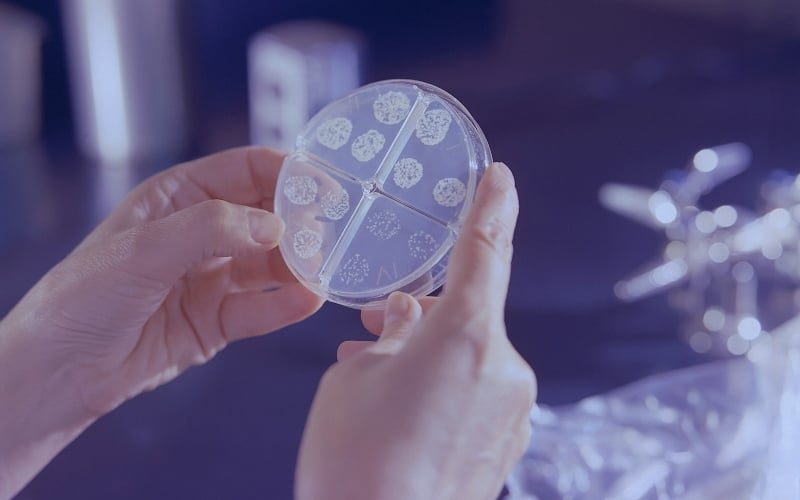By Kelly Malcom
As you enjoy your various holiday meals this season, don’t forget to thank your resident bacteria.
Amazingly, many of the carbohydrates that you eat, from veggies to wheat bread, aren’t broken down by your own cells but by certain microbes that live in the gut.
Now research from the University of Michigan uncovers a unique way the bacteria Bacteroides, which make up nearly half of the gut microbiome, synthesize the proteins needed to degrade carbohydrates.
“Bacteroides are super important for processing those carbohydrates, and when they do that, they don’t actually release the sugars back into the intestine, but take all those sugars, ferment them, and then release short-chain fatty acids, which have all sorts of different physiological effects,” said Nicole Koropatkin, Ph.D., associate professor in the Department of Microbiology and Immunology.
Short-chain fatty acids, like propionate and butyrate, are linked to overall gut health and can reduce inflammation.
To make short-chain fatty acids, bacteria first decorate their cell membranes with proteins called lipoproteins, with the lipid tethering the protein to the cell like the string on a balloon.
This technique is well documented in E. coli bacteria, which uses an enzyme called lipoprotein N-acyltransferase.
However, this process in Bacteroides wasn’t yet described.
Krista Armbruster, Ph.D., a bacterial geneticist working with Koropatkin, used the notorious E. coli to compare their lipoprotein synthesis techniques.
By genetically removing the lipoprotein machinery in E. coli and replacing it with pieces of the Bacteriodes genome, they discovered that the latter used an entirely different enzyme, aptly dubbed lipoprotein N-acyltransferase in Bacteroides, also referred to as Lnb, to do the same thing.
Their work was recently published in PNAS.
Additionally, they demonstrated that deleting Lnb interfered with cell growth and processing of carbohydrates, a fact that could be exploited in the development with new antibiotics.
“While Bacteroides are considered good bacteria, they can act as pathogens outside of the gut,” said Koropatkin.
“Discovering differences in physiology of this bacteria could provide us with something that can be specifically targeted to stop infection.”
Additional authors: Jiawen Jiang, Mariana G. Sartorio, Nichollas E. Scott, Jenna M. Peterson, Jonathan Z. Sexton and Mario F. Feldman.
Paper cited: “Identification and characterization of the lipoprotein N-acyltransferase in Bacteroides” PNAS. DOI: 10.1073/pnas.2410909121
Sign up for Health Lab newsletters today. Get medical tips from top experts and learn about new scientific discoveries every week.
Sign up for the Health Lab Podcast. Add us wherever you listen to your favorite shows.
—
Previously Published on michiganmedicine.org with Creative Commons License
***
Does dating ever feel challenging, awkward or frustrating?
Turn Your Dating Life into a WOW! with our new classes and live coaching.
Click here for more info or to buy with special launch pricing!
***
On Substack? Follow us there for more great dating and relationships content.
Join The Good Men Project as a Premium Member today.
All Premium Members get to view The Good Men Project with NO ADS. A $50 annual membership gives you an all access pass. You can be a part of every call, group, class and community. A $25 annual membership gives you access to one class, one Social Interest group and our online communities. A $12 annual membership gives you access to our Friday calls with the publisher, our online community.
Register New Account
Need more info? A complete list of benefits is here.
—
Photo credit: unsplash
Publisher: Source link





